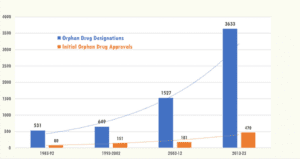Calling Clients About Life and Annuities? There Are Laws for That

What You Need to Know
The federal government has the Telephone Consumer Protection Act.
States can adopt their own mini TCPAs.
One factor that could trip you up: state autodialer definitions.
The Telephone Consumer Protection Act is one of the federal laws governing how organizations conduct telemarketing and outreach efforts.
The TCPA places restrictions around the use of an automated telephone dialing system or another phone system with the capacity to be an “ATDS,” or autodialer, and to maintain and adhere to the do-not-call lists of individuals who have opted out of being approached by telemarketers.
TCPA also regulates:
Call curfews.
How often an organization can contact someone.
Wireless calls.
A reassigned numbers database.
Exemptions for calls for emergency purposes.
Calls to individuals or entities with which the caller has established business relationships.
Express written consent for individuals or entities to be on call lists.
In addition to the federal TCPA, many states have passed their own “mini TCPAs” that preempt federal regulation.
For insurance agents making outbound calls, this means they must abide by the over-arching federal TCPA rules and regulations, in addition to the state-specific mini TCPAs for any states they are calling into.
The State Laws
What are “mini TCPAs,” and what do they mean for life insurance and annuity agents calling into specific states?
States such as Florida, Maryland, Oklahoma, and Washington had adopted their own “mini-TCPAs” as of 2023.
Maryland’s law took effect Jan. 1.
Other states have TCPA-type legislation pending, making it important for agents to stay up to date on the ever-changing TCPA and do-not-contact landscape to avoid costly penalties in fines.
Mini TCPA Differences
In states that are passing their own “mini TCPA” laws, differences between the state laws and the federal laws often affect matters such as call frequency, consent requirements, the definition of what constitutes an ATDS, and minimum and maximum penalties per incident and more.
In many cases, state-specific mini TCPAs are more stringent than what the federal government mandates.
Under the federal TCPA, an organization could be fined up to $500 per call if they violate TCPA regulations and up to $1500 per call if it is proven they willfully violated the TCPA.
Fines at a state level are typically much higher.
New York and Connecticut recently increased their fine amount to $20,000 per violation.
The definition of an ATDS also varies from state to state.
Florida and Oklahoma have made amendments to what constitutes an ATDS that place harsher restrictions on using an autodialer for outreach purposes.
In Maryland, the new “Stop the Spam Calls Act of 2023″ prohibits companies from placing telephone solicitations using an ATDS for solicitation or dialing of telephone numbers without prior express written consent, making many companies rethink their outreach strategy in Maryland.




